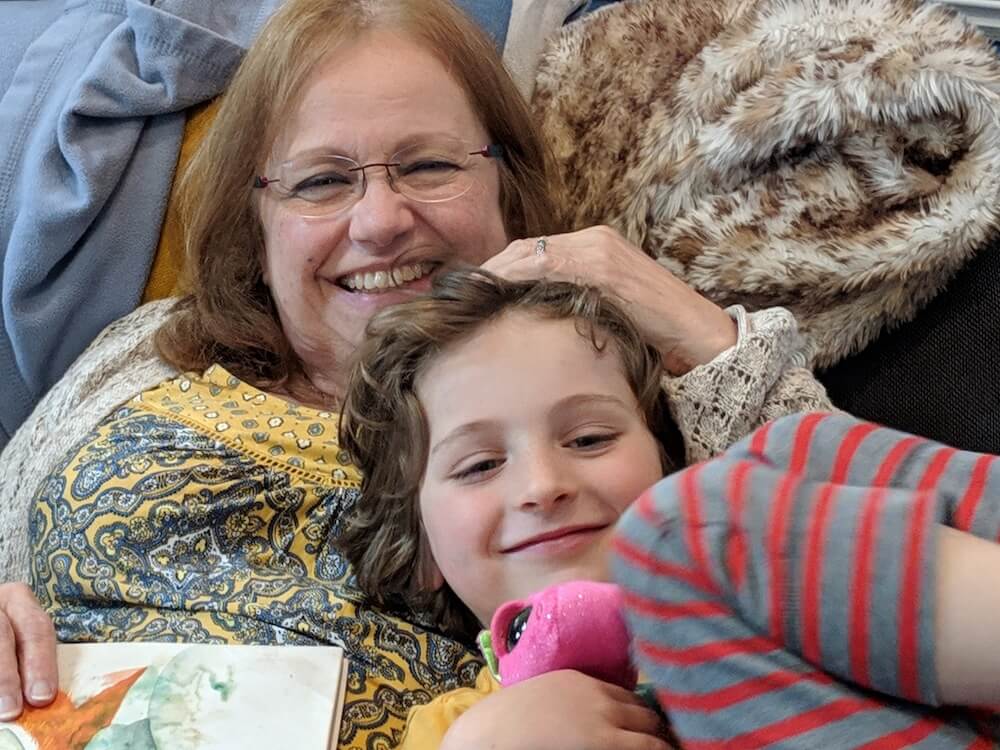As a designer of fantasy-style board games, Kate Beckett knows that timing and chance can play important roles in a player’s survival. Living with metastatic endometrial cancer, she has proof both can also be helpful in the real world.
Beckett had already endured a hysterectomy, chemotherapy, radiation, and a serious kidney infection during six years of treatment before coming to the Susan F. Smith Center for Women’s Cancers at Dana-Farber in late 2019. Because Beckett’s tumor was located deep in her inner hip muscle, it could not be fully removed — and eventually it spread to her hip. She felt herself running out of options.
Then, Beckett met Ursula Matulonis, MD, chief of the Division of Gynecologic Oncology. It was the equivalent of a perfect roll of the dice.
“I can offer you something now that I couldn’t have offered you just a few weeks ago,” Matulonis told Beckett. “It’s a newly FDA-approved immunotherapy drug for your type of cancer.”
Empowering the immune system
The drug was pembrolizumab (Keytruda), which targets a protein known as PD-1 known to block the immune system from responding to certain endometrial cancers. By thwarting PD-1, pembrolizumab paves the way for the immune system to shrink or slow the growth of tumors.
“I just needed hope,” says Beckett. “I wanted more time with my husband, my daughter, my grandson, and sunsets. This was a chance.”

Once Beckett, whose lungs had also been damaged by previous treatments, was cleared by a pulmonologist, she began the protocol. Every three weeks, the Portsmouth, New Hampshire resident and her husband, David Miller, would make the drive to Dana-Farber for infusions and checkups with Matulonis or nurse practitioner Catherine Earley, NP.
Almost immediately, Beckett began to feel better. The terrible leg and back pain caused by her tumor lessened, and she regained some of the strength sapped since her 2013 diagnosis. After a year and a half on the two-year protocol, her tumor has stabilized.
“Kate has done extremely well,” says Matulonis. “She is now able to exercise and live her life to the fullest.”
Treatment during COVID-19
The confidence and warmth Beckett receives from Matulonis and Susan F. Smith Center staff even makes the long, early-morning drives to Boston easier to take. During the COVID-19 pandemic, Beckett has been making the trips alone due to Dana-Farber’s current no-visitor policy, but still feels surrounded by loved ones.
“You become very invested in the people helping you through something like this, and everybody there is amazing,” says Beckett. “When one of my infusions was on my birthday the nurses came in with a cake and sparkling cider, singing and dancing for me.”
Beckett walks with a limp from earlier treatment, and accepts that her days as a serious hiker are over. She feels better than she has in years, however, and with her and her husband’s games now played in 54 countries, plenty more adventures to experience — and create.
